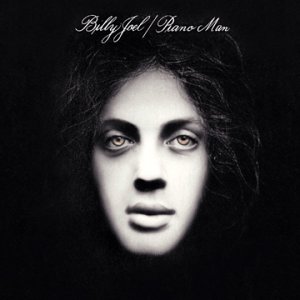
- Format: MP3

Embittered by legal disputes with his label and an endless tour to support a debut that was dead in the water, Billy Joel hunkered down in his adopted hometown of Los Angeles, spending six months as a lounge singer at a club. He didn't abandon his dreams — he continued to write songs, including "Piano Man," a fictionalized account of his weeks as a lounge singer. Through a combination of touring and constant hustling, he landed a contract with Columbia and recorded his second album in 1973. Clearly inspired by Elton John's Tumbleweed Connection, not only musically but lyrically, as well as James Taylor, Joel expands the vision and sound of Cold Spring Harbor, abandoning introspective numbers (apart from "You're My Home," a love letter to his wife) for character sketches and epics. Even the title track, a breakthrough hit based on his weeks as a saloon singer, focuses on the colorful patrons, not the singer. If his narratives are occasionally awkward or incomplete, he compensates with music that gives the songs a sweeping sense of purpose — they feel complete, thanks to his indelible melodies and savvy stylistic repurposing. He may have borrowed his basic blueprint from Tumbleweed Connection, particularly with its Western imagery and bluesy gospel flourishes, but he makes it his own, largely due to his melodic flair, which is in greater evidence than on Cold Spring Harbor. Piano Man is where he suggests his potential as a musical craftsman. He may have weaknesses as a lyricist — such mishaps as the "instant pleasuredome" line in "You're My Home" illustrate that he doesn't have an ear for words — but Piano Man makes it clear that his skills as a melodicist can dazzle.